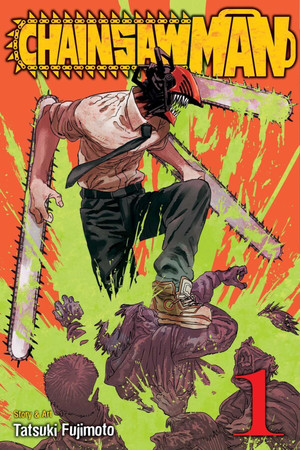
[ad_1]
Publishers Weekly: issues will cause supply chain challenges in book industry into 2022
 Media news website ICv2 reported on Thursday that North American bookstores and retailers are facing a shortage in the supply of manga in terms of reader demand. The website reported that major retailers such as Amazon and Barnes & Noble, as well as specialty shops such as Comics Conspiracy in Sunnyvale, California and Comicopia in Boston, Massachusetts are selling out of popular manga titles and are unable to restock many of them.
Media news website ICv2 reported on Thursday that North American bookstores and retailers are facing a shortage in the supply of manga in terms of reader demand. The website reported that major retailers such as Amazon and Barnes & Noble, as well as specialty shops such as Comics Conspiracy in Sunnyvale, California and Comicopia in Boston, Massachusetts are selling out of popular manga titles and are unable to restock many of them.
According to publishing news outlet Publishers Weekly, truck driver shortages, widespread port congestion, and inflated container costs will continue to cause supply chain challenges in the book industry into 2022. According to ICv2, the new coronavirus disease (COVID-19) pandemic has exacerbated existing problems in the supply chain.
Vice President Publishing Sales for Viz Media Kevin Hamric stated to ICv2 that increased demand during the pandemic and consolidation in the printing industry in the past few years “led to printers being at max capacity and not being able to accept new jobs in a timely manner.” Hamric added, “Combine this with the fact that printers had to operate under COVID restrictions, as did book distribution warehouses, and the supply chain starts to slow down.” Hamric stated there are also other issues such as shortages in paper, pallets, carton, employees, and truck drivers, along with issues in ports, containers, and shipping.
Yen Press Publisher Kurt Hassler also told ICv2 that in addition to increased demand, printing lead times have increased steadily and substantially in the past few years.
As of press time, most volumes of Tatsuki Fujimoto‘s Chainsaw Man manga are listed as out of stock on Amazon and Barnes & Noble, as well as the first volume of Koyoharu Gotouge‘s Demon Slayer: Kimetsu no Yaiba manga. The first volume of Kōhei Horikoshi‘s My Hero Academia manga had one copy in stock on Amazon and was sold out on Barnes & Noble.
Ryan Higgins of Comics Conspiracy stated that while ongoing manga series were still available at the store, the store was unable to stock most volumes of completed series.
Director of Publishing at Penguin Random House Ben Applegate stated the company is “doing [its] best to place reprint orders to account for transportation time, but it’s been difficult to estimate what the need will be when stores are getting completely cleared out and placing large reorders on a weekly basis.” He also stated that several of the printers Penguin Random House uses are trying to increase staffing and facilities. Penguin Random House is the parent company of Kodansha Comics and its production team has gone from working with three printers to eight printers in five countries at any given time and is in the process of evaluating more. Applegate advised: “If you are buying manga for a store and there is an order you’re not sure will be fulfilled, we encourage you to contact your PRH sales rep to see what can be done.”
J-Novel Club posted on Twitter on July 8 that the issues are “affecting everyone in the print book industry right now.”
ICv2 reported earlier this month that North American sales of print manga reached an all-time high in 2020. The new peak surpassed the previous record, which was set in 2007.
ICv2 reported in April that NPD Bookscan’s report for the first quarter of 2021 showed a 29% increase in overall print book sales the United States, the highest volume of print book sales in a first quarter since NPD Bookscan began tracking book sales in 2004. In particular, the report showed a large growth in the category of graphic novels (up 4 million from first quarter 2020), with manga accounting for 80% of growth in that category.
Sources: ICv2 (Brigid Alverson), Publishers Weekly (Jim Milliot)
[ad_2]





